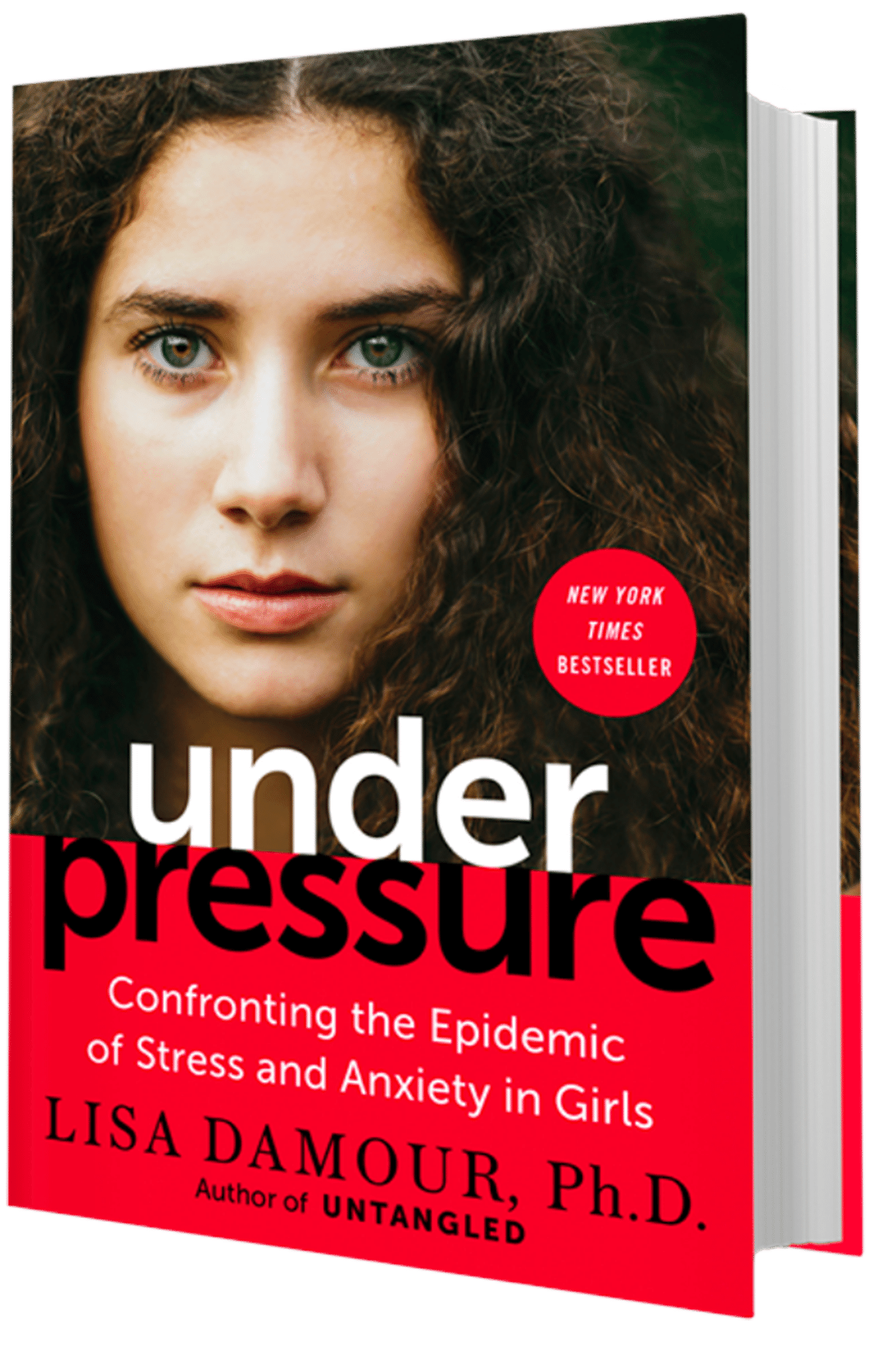Girls, as a group, are bad at dealing with conflict because people, as a group, are bad at dealing with it. And we cannot teach our daughters what we don’t know. Though in the past I have declared my certainty that we will never find a cure for the seventh grade, and I have sometimes felt pessimistic about helping girls (and adults) improve their ability to manage disagreements effectively, I have lately changed my tune....

Under Pressure Confronting the epidemic of stress and anxiety in girls
Lisa’s second New York Times best seller is a celebrated guide to addressing the alarming increase in anxiety and stress in girls from elementary school through college.
Buy nowA remarkably thorough and accessible guide for raising girls into strong, independent women
Damour thoughtfully and compassionately discusses the many pitfalls faced by adolescent girls today, advising parents on how to help their daughters past obstacles while reinforcing confidence and minimizing stress.
New insight into the old issue of teen girls suffering stress and anxiety.
In readily accessible and easily assimilated prose, Damour . . . [makes] common-sense suggestions to help parents help their daughters in these highly competitive times. Practical solutions backed by solid research that will help many girls overcome their high levels of stress and anxiety.
Under Pressure provides both a helpful understanding of stress and anxiety and practical guidance for both parents and educators.
Although the book is targeted to parents of school-aged girls, it also has the potential to help adult women. Perhaps it was Damour’s comforting tone or the care with which she writes about her patients, but I easily related to the girls in her book and found connections to my own journey with anxiety.
Although aimed at parents, Damour’s sensible and empathetic approach will also be reassuring for teens seeking guidance.
Drawing on her practice with teens of various backgrounds and her experiences as a parent, Damour analyzes sources of stress in interactions with parents, competitions between friends, sexual harassment, academic expectations, and cultural influences. Damour offers practical suggestions for heading off stressful encounters and counteracting their influences.
Actionable advice for a variety of situations girls face in their lives
Under Pressure tackles the difficult job of defining, analyzing, and advising on the many stressors and pressures that are facing girls today. Parents who found a valuable resource in Damour’s Untangled will certainly want to add Under Pressure to their reading list.
Though anxiety has risen among teens and young adults overall, studies confirm that it has skyrocketed in girls. Research finds that the number of girls who said that they often felt nervous, worried, or fearful jumped 55 percent from 2009 to 2014 while the comparable number for adolescent boys has remained unchanged.
As a clinical psychologist who specializes in working with girls, Lisa Damour, Ph.D., has witnessed this rising tide of stress and anxiety in her own research, in private practice, and in the all-girls’ school where she consults. She knew this had to be the topic of her new book.
Under Pressure starts by addressing the facts about psychological tension. Damour explains the surprising and underappreciated value of stress and anxiety: that stress can helpfully stretch us beyond our comfort zones, and anxiety can play a key role in keeping girls safe. When we emphasize the benefits of stress and anxiety, we can help our daughters take them in stride.
But no parents want their daughter to suffer from emotional overload, so Damour offers solutions to the tensions that take hold in the many facets of girls’ lives: their interactions at home, pressures at school, social anxiety when among other girls and among boys, and social media.
Readers who know Damour from Untangled or the New York Times, or from her regular appearances on CBS News, will be drawn to this important new contribution to understanding and supporting today’s girls.
Book Excerpt About Peers & Friends
Book Excerpt About Stress & Coping
Of course, there are girls and families who do everything in their power to address the social and academic impact of mononucleosis yet still find themselves struggling to get back on track. We can better understand their challenges when we recognize that just as stress is not all bad, it is not all the same. When psychologists study stress and its impact on health, we sort it into three distinct domains, namely life events, daily hassles, and chronic stress....
 Under Pressure
Confronting the epidemic of stress and anxiety in girls
Under Pressure
Confronting the epidemic of stress and anxiety in girls
The advice provided here by Dr. Damour and the resources shared by her AI-powered librarian, Rosalie, will not and do not constitute - or serve as a substitute for - professional psychological treatment, therapy, or other types of professional advice or intervention. If you have concerns about your child’s well-being, consult a physician or mental health professional.






